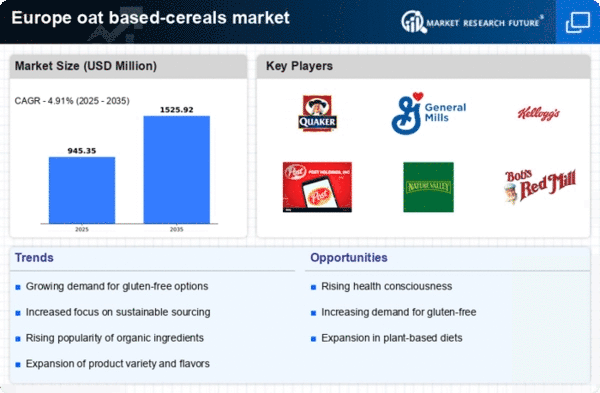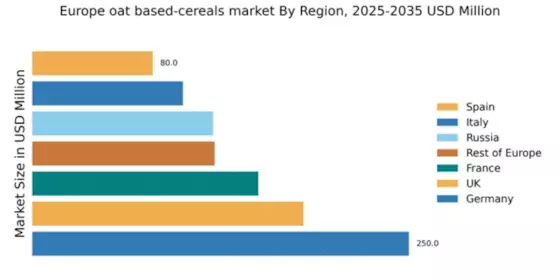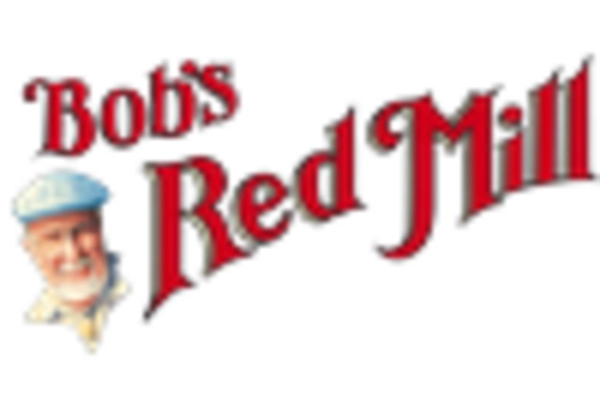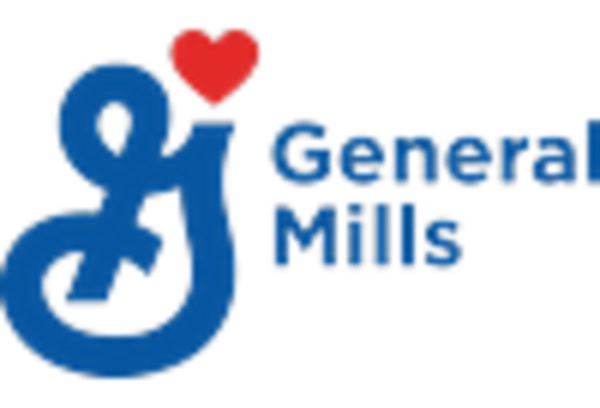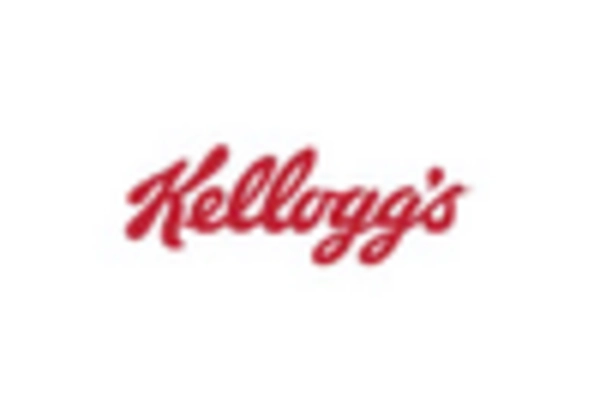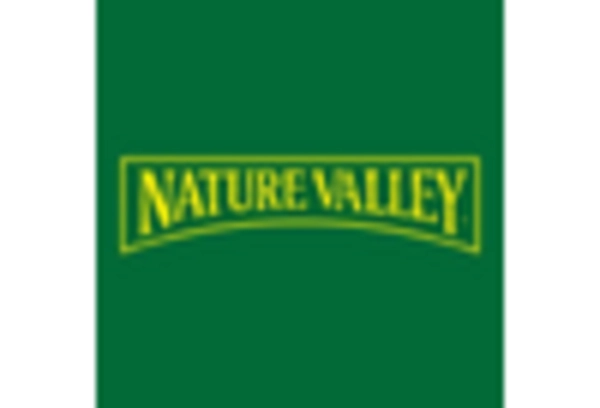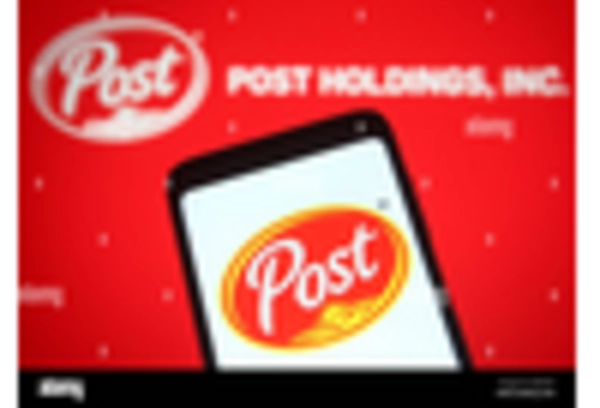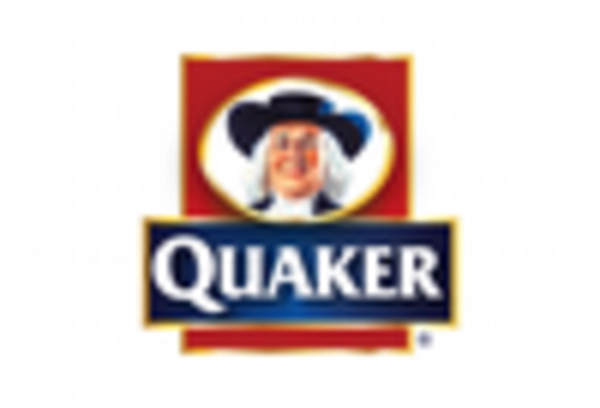Increased Focus on Functional Foods
The oat based-cereals market in Europe is witnessing a significant shift towards functional foods, which are perceived to offer health benefits beyond basic nutrition. Consumers are increasingly seeking products that can enhance their well-being, such as those fortified with vitamins, minerals, and probiotics. The oat based-cereals market is responding to this demand by developing innovative products that cater to health-conscious consumers. For instance, oats are known for their ability to lower cholesterol levels and improve digestive health, making them a prime candidate for functional food formulations. Market data suggests that the functional food sector is projected to grow at a CAGR of 8% over the next five years, indicating a robust opportunity for oat-based cereals to capture a larger share of this expanding market.
Rising Demand for Plant-Based Diets
The oat based-cereals market in Europe is experiencing a notable surge in demand driven by the increasing consumer inclination towards plant-based diets. This shift is largely influenced by health-conscious individuals seeking alternatives to animal products. According to recent data, approximately 30% of European consumers are actively reducing their meat consumption, which correlates with a heightened interest in plant-based foods, including oat-based cereals. The oat based-cereals market is well-positioned to capitalize on this trend, as oats are recognized for their nutritional benefits, including high fiber content and heart health properties. This growing preference for plant-based options is likely to propel the market forward, as manufacturers innovate to meet the evolving dietary preferences of consumers.
Convenience and On-the-Go Consumption
The fast-paced lifestyle of European consumers is driving the oat based-cereals market towards convenience-oriented products. As more individuals seek quick and easy meal solutions, the demand for ready-to-eat and on-the-go oat-based cereals is increasing. This trend is particularly evident among busy professionals and families who prioritize convenience without compromising on nutrition. The oat based-cereals market is adapting by introducing single-serve packaging and instant options that cater to this need. Recent surveys indicate that nearly 40% of consumers prefer products that can be prepared in under five minutes, highlighting the importance of convenience in purchasing decisions. This shift towards convenience is likely to shape product development strategies within the oat based-cereals market.
Growing Awareness of Nutritional Benefits
There is a rising awareness among European consumers regarding the nutritional benefits of oats, which is positively impacting the oat based-cereals market. Oats are recognized for their high fiber content, particularly beta-glucans, which are known to support heart health and regulate blood sugar levels. This growing knowledge is prompting consumers to seek out oat-based cereals as a healthier breakfast option. The oat based-cereals market is capitalizing on this trend by emphasizing the health benefits of oats in marketing campaigns and product labeling. Data suggests that approximately 60% of consumers are now more inclined to choose cereals that are high in fiber, indicating a shift towards healthier eating habits. This increased awareness is likely to drive further growth in the oat based-cereals market.
Sustainability and Environmental Concerns
Sustainability has become a pivotal concern for consumers in Europe, influencing their purchasing decisions significantly. The oat based-cereals market is benefiting from this trend, as oats are considered an environmentally friendly crop due to their lower water and land requirements compared to other grains. Recent studies indicate that the carbon footprint of oat production is substantially lower, making it an attractive option for eco-conscious consumers. As awareness of climate change and environmental degradation grows, the demand for sustainable food products, including oat-based cereals, is expected to rise. This shift not only aligns with consumer values but also encourages manufacturers to adopt sustainable practices, further enhancing the appeal of oat-based cereals in the market.


